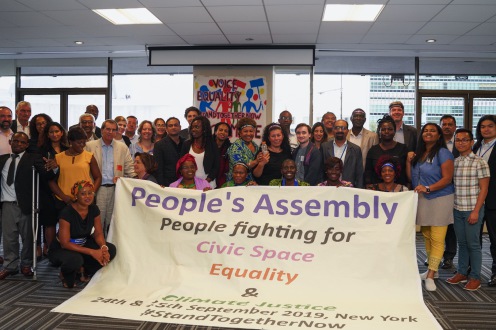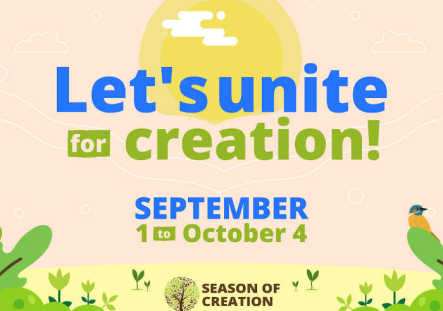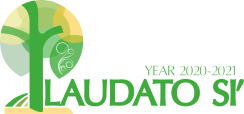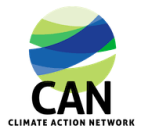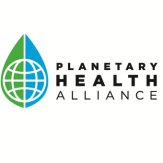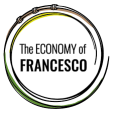Laudato Si News
Pope Francis - Climate Ambition Summit 2020, Vatican City State will achieve net-zero emissions before 2050
Pope Francis participate in the virtual Climate Ambition Summit, on 12 December. In his video message, Pope Francis expressed his support for efforts to work toward net-zero emissions, and described the Holy See’s actions in this regard, which take place on two different levels.
Vatican City State, said the Pope, is dedicated to achieving net-zero emissions before 2050. The Vatican is also seeking to care for the environment by reducing its water and electricity usage, and by employing tactics to encourage energy efficiency, sustainable transportation, reforestation, and waste recycling. The Holy See is committed to promoting education in integral ecology through with the Global Education Pact to accompany Catholic schools and universities, attended by more than seventy million students in all continents. (Source Vatican News /Press Office)”
The current pandemic and climate change, which have not only environmental, but also ethical, social, economic and political relevance, affect above all the life of the poorest and most fragile. In this way they appeal to our responsibility to promote, through collective and joint commitment, a culture of care, which places human dignity and the common good at the centre. Aside from adopting various measures that cannot be postponed any further, a strategy is necessary to reduce net emissions to zero (net-zero emission).
Pope Francis - High-Level Virtual Climat[...]
PDF-Dokument [30.1 KB]
Lear More: Pope Francis Speech 1:36 - 1:40 (English)
2020 will likely be one of three warmest years on record, according to the provisional 2020 WMO State of the Global Climate report. Ocean heat is at record levels. Extreme heat, wildfires and floods, as well as a record-breaking Atlantic hurricane season, have affected millions of people. Even with pandemic lockdowns slowing economic activity, atmospheric concentrations of greenhouse gases continued to rise.
2020_wmo_provisional-report-state-climat[...]
PDF-Dokument [3.1 MB]
The Economy of Francesco (LIVE)
International Online Event (Assisi), November 19-21, 2020
"The Economy of Francesco" giving a new soul to global economy. The “Economy of Francesco” is a worldwide movement of young people who aim to change the current economic models and craft a future that is more inclusive and just. It was convoked by Pope Francis in 2019 when he asked economists and young people to give life to the idea of a different kind of economy, one that is more attentive to the weakest members of society and is not focused exclusively on the gain of material wealth (Source Vatican News).
Season of Creation 2020 Highlights (22.10.2020)
From 1 September through 4 October, thousands of Christians on six continents united for a time of restoration and hope, a jubilee for our Earth, and discovered radically new ways of living with creation.
First time in history, the whole global Christian family united to pray and take action for our common home.
Thousands of people and communities participated in life-giving events, lighting the way for our most vulnerable sisters and brothers, who are searching for hope amidst a pandemic and the worsening climate crisis, among other crises affecting our world (Source GCCM)
Global Compact of Education 15.10.2020
"Education, as we know, is meant to be transformative" (Pope Franics).
Pope Francis relaunches the Global Compact on Education on Thursday 15.10.2020 with a video message during a virtual event at Rome’s Pontifical Lateran University.
Two obligations concern Laudato Si:
- to be committed to finding new ways of understanding the economy, politics, growth and progress that can truly stand at the service of the human person and the entire human family, within the context of an integral ecology.
- to safeguard and cultivate our common home, protecting it from the exploitation of its resources, and to adopt a more simple lifestyle marked by the use of renewable energy sources and respect for the natural and human environment, in accordance with the principles of subsidiarity, solidarity and a circular economy.
“Fratelli tutti”- Pope Francis's Social Encyclical
4.10.2020 Fraternity and social friendship are the ways the Pontiff indicates to build a better, more just and peaceful world, with the contribution of all: people and institutions. With an emphatic confirmation of a ‘no’ to war and to globalized indifference.
COVID 19 - The Great Reset to build a Healthier Future
Pope Francis is certain of this and is repeating it to everyone: we will emerge either better or worse after the pandemia. The global crisis requires that the parameters of human co-existence be
rethought through the lens of solidarity. On this foundational idea, "Covid19: Building a Healthier Future" has been created in collaboration with the Dicastery for Promiting Integral Human
Development, to offer a vision that might lead to the beginning of a new fraternity after the pandemic.
Global Week to Act for SDGs - People’s Assembly 2020 (16-26 September 2020)
Bishop Efraim Tendero (Secretary General World Evangelical Alliance)
This year, the Global Week of Action for the SDGs will be held from 18 to 26 September, alongside the UN General Assembly, with the 5th anniversary of the Agenda 2030 and the SDGs, which were adopted on 25 September 2015. Pope Francis will speak via video message to the U.N. General Assembly on Sept. 21. Pope Francis is expected to speak about using the coronavirus crisis as an opportunity to rethink economic, political and environmental policies in a way that will benefit humanity and the earth.
The 2020 Global Week to Act4SDGs, on September 18-26, is a joint call to action for everyone– leaders, citizens, organizations and institutions- to commit to make this a Turning Point for People and Planet and put the Goals at the heart of their recovery plans, to use the next ten years to deliver all the Sustainable Development Goals, together.
2020 has been an incredibly challenging year. Millions have been severely affected by the COVID-19 crisis - from getting sick or succumbing to the virus, to losing jobs and income, to facing hunger, deprivation and violence, to the repression of civil society. We do not know yet the full extent as the crisis still looms large or what the fallout will be, but we do know that inequalities have worsened, and worsening the situations of those who are marginalised, especially of older people and women. As a result, it is even more crucial to hold governments accountable to their commitments to implement and achieve the SDGs and to leave no one behind during this crisis.
2020 Season of Creation - 1 September to 4 October - Jubilee for the Earth
In the Spirit we are all United
The Time for Creation 2020 has become a truly ecumenical initiative.The Global Ecumenical Opening Prayer on 1 September, with over 1.000 mostly young Christians of different denominations (Catholics, Lutherans, Baptists, Anglicans and many more denominations) from Africa, Asia, Europe, North, Middle East and South America was an amazing experience for everyone. Participants prayed for forgiveness for “our vicious consumption of food and energy” and for “our failure to share what we receive from the earth.” They listened to the Old Testament account (Leviticus 25) of God commanding the Israelites to observe a year of rest for the land every seven years and to mark a Jubilee every 50th year.Living ecumenism, united and spiritually powerful for the care of our common home. Numerous priests, pastors, members of religious orders and bishops (Jan de Groef, South Africa) accompany and support the Opening Prayer. The final blessing was given by a Maori Anglican bishop living in the remote region of New Zealand’s North Island.
In his message for the World Day of Prayer for the Care of Creation and the Season of Creation, Pope Francis reflects on the Biblical significance of the Jubilee, as evoked by the theme of the Season of Creation, Jubilee of the Earth: "A Jubilee is a time to restore the original harmony of creation and to heal strained human relationships. Climate restoration is of utmost importance, since we are in the midst of a climate emergency. We are running out of time, as our children and young people have reminded us. We need to do everything in our capacity to limit global average temperature rise under the threshold of 1.5°C enshrined in the Paris Climate Agreement, for going beyond that will prove catastrophic, especially for poor communities around the world. We need to stand up for intra-generational and inter-generational solidarity at this critical moment. I invite all nations to adopt more ambitious national targets to reduce emissions, in preparation for the important Climate Summit (COP 26) in Glasgow in the United Kingdom.
Pope Francis invites everyone to participate in the implementation of Laudato Si' through action plans:"We also rejoice to see how the Laudato Si’ Special Anniversary Year is inspiring many initiatives at local and global levels for the care of our common home and the poor. This year should lead to long-term action plans to practise integral ecology in our families, parishes and dioceses, religious orders, our schools and universities, our healthcare, business and agricultural institutions, and many others as well."
In a Message Ecumenical Patriarch Bartholomew says “a change of direction toward an ecological economy is an unwavering necessity:It is inconceivable that we adopt economic decisions without also taking into account their ecological consequences. Economic development cannot remain a nightmare for ecology. We are certain that there is an alternative way of economic structure and development besides the economism and the orientation of economic activity toward the maximization of profiteering. The future of humanity is not the homo œconomicus".
The Seaon of Creation is the ecumenical initiative jointly supported by all churches in the world. The theme 2020 is Jubilee for the Earth. The concept of Jubilee is rooted in the holy wisdom that there must exist a just and sustainable balance between social, economic and ecological realities. When one variable is exploited to maximize growth of another, the whole system will eventually suffer. When one part of the earth community is stressed, every part is affected. In 2020, the novel coronavirus pandemic demonstrated this reality on a global scale. While the experience of living with the COVID-19 outbreak points back to this need to maintain justice, the lessons that we learn may point us towards the need for a Jubilee and motivate us to restore balance to the very systems that sustain life.
From 1 September to 4 October, Christians all over the world celebrate the Season of Creation, as well as the Day of Creation on 1 September. Following the tradition from previous years, in CEC and CCEE, we have taken advantage of this occasion and have encouraged our Member Churches in Europe to acknowledge these days to celebrate the richness of our faith as an expression to protect our common home
Joint statement issued by Cardinal Angel[...]
PDF-Dokument [113.2 KB]
28.08.2020 : WCC and Vatican call for interreligious solidarity in the face of the COVID 19 pandemic - Common Document: “Serving a Wounded World”
The World Council of Churches (WCC) and the Pontifical Council for Interreligious Dialogue (PCID) have released a joint document, “Serving a Wounded World in Interreligious Solidarity: A Christian Call to Reflection and Action During COVID-19 and Beyond.” Its purpose is to encourage churches and Christian organizations to reflect on the importance of interreligious solidarity in a world wounded by the COVID-19 pandemic
A Christian Call to Reflection and Action During COVID-19 and Beyond.
Serving a Wounded World in Interreligiou[...]
PDF-Dokument [502.3 KB]
Pope Francis invite to a virtual meeting (Rome, 15 October 2020, Paul VI Hall) for the new Global Compact for Education for the Care of our Common Home
Pope Francis launches the Global Educational Alliance initiative to shape the future of humanity by forming mature individuals who can overcome division and care for our common home.
By Devin Watkins (Vatican News)
The Vatican will host a digital meeting on 15 October 2020 in the Paul VI Hall to reflect on the theme “Reinventing the Global Educational Alliance”. The Holy See Press Office announced that the
Pope has invited representatives from various religions, NGOs, academia, and cultural and political leaders to attend, in hopes of endorsing the “Global Compact on Education”.
Renew dialogue
Pope Francis lent his support to the initiative on Thursday. In his written message, the Pope said the meeting “will rekindle our dedication for and with young people, renewing our passion for a more
open and inclusive education, including patient listening, constructive dialogue, and better mutual understanding.”The goal, he stressed, is to develop “a new universal solidarity and a more
welcoming society,” adding that education is key to driving positive change.
In an educational village
“Never before has there been such need to unite our efforts in a broad educational alliance, to form mature individuals capable of overcoming division and antagonism, and to restore the fabric of relationships for the sake of a more fraternal humanity,” he said.
Quoting an African proverb – “It takes a whole village to educate a child” – Pope Francis called for the creation of an “educational village”. In such a system, he said, everyone would
participate according to their respective roles to form a “network of open, human relationships.”
The Pope called it an alliance that “integrates and respects all aspects of the person, uniting studies and everyday life, teachers, students and their families, and civil
society in its intellectual, scientific, artistic, athletic, political, business, and charitable dimensions.”
And he laid out several steps towards creating this “educating village”.
Along paths of fraternity
For this project to succeed, Pope Francis said, fraternity must be allowed to flourish and discrimination swept aside, as he urged in the Document on Human Fraternity signed in Abu Dhabi with the Grand Imam of Al-Azhar.
The Pope said the first step is finding “the courage to place the human person at the center.” This means recognizing the world’s interconnectedness and re-thinking economics, politics, growth, and progress, giving pride-of-place to an integral ecology that rejects the throw-away culture.
Next, Pope Francis called for summoning up “the courage to capitalize on our best energies”. The status quo should be replaced by giving education “a long-term vision”, to create a new humanism. The result, he added, will be “men and women who are open, responsible, prepared to listen, dialogue and reflect with others, and capable of weaving relationships with families, between generations, and with civil society.”
The Pope said a further step is “the courage to train individuals who are ready to offer themselves in service to the community.” Service, he said, is the “pillar of the culture of encounter”, and means helping the neediest of people and discovering that “there is more joy in giving than in receiving.”
To direct history
Pope Francis concluded by inviting everyone to commit themselves to improving their communities and to promoting “forward-looking initiatives that can give direction to history and change it for the
better.”
“Let us seek solutions together, boldly undertake processes of change, and look to the future with hope.”



